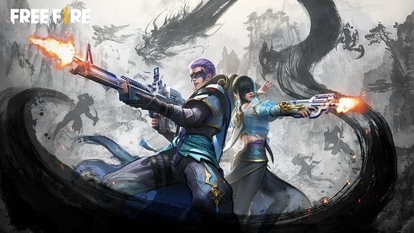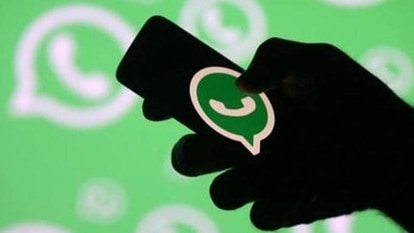Is the internet taking over our lives?
We’re on the Net 24x7, whether it’s our PCs, laptops or mobiles. Have we started relating more to the virtual world than the real world? Read on to find out.
Imagine, if you can, a small room, hexagonal in shape, like the cell of a bee. It is lit neither by window nor by lamp, yet it is filled with a soft radiance. A woman sits in an armchair in the centre of the room, the space around her filled with hundreds of shiny knobs and buttons. The woman presses a button and is instantly updated with the latest news and knowledge from around the world. As she touches a small knob at her side, images of friends and family, scattered halfway across the globe, appear on a small, translucent blue plate before her. The woman engages in many hours of happy conversation.
Thus begins
The Machine Stops
, EM Forster's science fiction tale, published in 1909. The novella describes a world in which almost all humans lead isolated lives in underground 'cells'. The entire population communicates through a mysterious kind of instant messaging/video conferencing 'machine' called the speaking apparatus and shares ideas and knowledge. Meeting people in real life is looked down upon, even discouraged. Had Forster been alive today, he would have been amazed to see how eerily close he had come to describing today's Net-driven world.
Forty years ago, the Internet uttered its first word - lo - as computers sending data through a 15-foot cable at the University of California, Los Angeles, crashed when researchers tried to transmit 'log'. Circa 2010: Forster's mysterious 'machine' - or the Internet, as we like to call it these days - is on a roll, getting bigger by the day, swallowing everything (and everyone) in its path. Want to watch your favourite movie? Sit back and hit the download button. Want to poke a pal across the continent? He's just a click away. Feel like a pizza? Enter a credit card number and wait for your treat to be delivered to your doorstep. Want to do these things on the move? No problem - grab a smartphone.
Whether it is conducting banking transactions, booking travel and flight tickets, or simply getting a message across, increasingly, the Internet is playing a bigger and bigger role in the way we live, think and interact with people around us. But is it taking over our lives?
All screen time, all the time
"That's a pretty strong statement to make," says 30-year-old Saad Akhtar. The portly founder of India's most popular web-comic, flyyoufools.com, shot to fame recently after being blocked by author Chetan Bhagat for his acerbic witticisms on Twitter (this caused quite an upheaval in the Twitter world with thousands of anti-Bhagat tweets and a trending topic, #chetanblocks). "I would definitely call myself a heavy Internet user - I'm plugged in all the time, either from home, work or from my iPhone," says Akhtar. "But that doesn't mean I'm addicted or anything," he quips.
Apart from being extremely active on Twitter ("50 per cent of the traffic on my site comes in via Twitter," he claims), Akhtar spends most of his online time trying to catch up with - hold your breath - the three hundred or so blogs that he subscribes to! "The best part about the Web is that you can read things at your own pace," he says, and then adds as an afterthought, "You know what? I could actually be addicted. Maybe I'm just going through the initial denial phase!"
For Nabeel M, a 25-year-old freelance writer based in Bangalore, life online begins at 8 am and ends only around midnight. "I read online magazines, check my Facebook and Twitter feeds, and update my Twitter stream with interesting things about current affairs," says Nabeel (@softykid on Twitter), who was voted the 20th most popular tweeter of 2009 (no big surprise: at the time of writing, he had more than 47,000 tweets to his credit, a huge number, even for someone really active).
Nabeel says that like most people hooked onto the social web, he found out about Michael Jackson and Andhra Chief Minister YS Reddy's deaths via Twitter. For him, the Web is the only source of information ("I don't read newspapers. Why should I wait 24 hours to get my news? I just don't get it!"), and he claims that he communicates more over Twitter than his cell phone ("Isn't it easier to tweet a pal to ask him to come over and hang out?").
Statistics show that worldwide, broadband subscribers have surpassed 380 million, 50 million of them in India alone. The numbers are staggering: in December 2008, there were 186,727,854 websites on the Internet with 31.5 million of them added in that year itself. Across the world, people sent 210 billion emails each day (not including 53.8 trillion pieces - get this - of spam, the unsolicited mail that often ends up in your 'Junk' mail folder). And 57 per cent of all Internet users have joined a social network, making it the number one platform for creating and sharing content.
In fact, social networking sites figure in the list of the top-blocked sites in office environments. "We not only block Facebook, Orkut and Twitter," says an HR professional in a leading telecom firm, "we even block personal email sites like Gmail, Yahoo! and Live Hotmail. We have extremely stringent policies for Internet use during office hours and any employees violating these rules may face severe action."
So clearly, most people are hooked to the Net (including this writer, a self-confessed Net junkie, who was recently berated by his colleagues for turning to Twitter for the weather than looking out the window like 'normal people'!). But what exactly is it about the Web that has people glued to their screens for hours? Yes, we know, it's cheap, easy, and convenient and gets work done in a jiffy, but is that any justification for whipping out your Blackberry and replying to an email when partying with friends?
"One of the big reasons for the addiction is that the Internet cuts your loneliness and acts as a huge, anytime-anywhere support system," says Dr Rachna Khanna Singh, psychologist and lifestyle expert at Artemis Health Institute, Gurgaon. "In real life, people may not be available instantly the moment you want them to be with you. But on the Web, you press a button and your entire virtual circle is always there with you."
Ever tried flirting with anyone online? Or giving your least favourite author your honest opinion about his book on his blog? Chances are that unlike real life, you held nothing back. "On the Internet, people are more honest than usual, says Dr. Singh. "In a sense, it gives people a false sense of power due to its anonymous nature."
Dr Dayal Mirchandani, a Mumbai-based psychiatrist, feels that the Web takes time away from real-life relationships. "There's a big difference between chatting online and conversing in person," he says but adds that if you're really introverted or lonely, indulging in a bit of online banter will do you some good!
A very social life
In a recent interview, Leonard Kleinrock, engineer and computer scientist at the University of California, Los Angeles, who is credited with the birth of the Internet, had this to say: "I knew that the Internet would be always available. What I missed was the social aspect, namely that my 99-year-old mother would be on the Net. And by the way, at the same time, my preschool granddaughter would also be there!"
On the Web today, social is the new buzzword, whether you're simply taking quizzes on Facebook and sharing them with your virtual 'friends', forming virtual armies and battling monsters in MMORPGs (Massively Multiplayer Online Role-Playing Games) like World of Warcraft and Ragnarok, or looking for news as it breaks on Twitter (a concept known as 'real-time' search).
"There is a certain path that every newcomer on the Web generally follows," says Priyanka Sachar (@twilightfairy on Twitter), a social media consultant and founder of the Delhi Bloggers Bloc, possibly the oldest blogging group in the country. "People start off with email and instant messaging, move on to Orkut and graduate to Facebook. If they're really hooked, they make the leap to Twitter," she adds.
In 2004, the launch of Orkut, Google's social networking site was a watershed in ushering in the social networking phenomenon in India. Unless you lived on the bleeding edge and were already on MySpace (too American for most users' liking), there was no major platform for the average Internet user to interact and connect with thousands of like-minded users in one location. "I like to think of Orkut as a sort of a virtual watering hole," says Vihari Komaragiri, product manager for Google India. "So for instance, if you're stuck while preparing for an examination, or want to see what other people in the country think of a recently released movie, there will always be like-minded communities and users to interact with."
That, in itself, seems like a sign - when you have so many 'friends' online, scattered across your social and instant messaging networks and have communities tailored to your own interests, whims and fancies, who needs a social life? "There is very little distinction between my online and offline worlds," says Sachar. "But I do hang out with my 'offline' friends as well. We have get-togethers and go on trips." Sachar thinks that when people interact online and click (pun intended), the natural progression of that relationship is to take it offline. "There are people who take it overboard," she says. "But for me, the Internet is no substitute for the real world!"
Meenal Balar, international marketing manager for Facebook, feels that the online and the real worlds are not mutually exclusive. "Social networking sites facilitate real-world connections," she says. "People use them to connect with people they know, share their thoughts, plan events, and upload photos in a manner that is very 'real' - it just tends to be more fun and efficient than writing letters, stamping invitations, or sending envelopes with photos," she observes. Adds Nabeel: "I think people bond more strongly online than offline. Most of my online friends have become friends in real life as well."
But can you trust strangers you meet on the Internet? What if a person is nothing like what he or she seems online? Nitin Mathur, director of marketing at Yahoo! India, feels that this is certainly a problem as more and more people realise that that the Internet is a great tool to differentiate themselves from the rest of the crowd.
"You want to have frills attached to your profile, you want to share your vacation pictures with friends, you want to flaunt the latest gadget you purchased… basically, you just want to project a certain personality," he says. "I think it's mostly aspirational."
At world's end
So is this the future? Have we arrived? And if we have, then what is the road ahead? "A few years ago, the focus was on how to get connected," says Sachar. "Now we're so densely connected that we're just a series of dots over the globe. The challenge in the future will be how to curate this tremendous amount of information and separate the wheat from the chaff."
Some experts feel that going ahead, the Internet is going to have an increasingly personal relevance. "It is definitely going to become extremely individualistic," feels Mathur. "It's going to be about I, Me, Myself, about my interests, desires, connections, contacts, photos and videos," he says. "Also, privacy will be a big concern in the years to come as people become increasingly choosy about what they share online and with whom. Gone are the days when I want to throw open my life to my 2,000 online friends," he adds.
Others, like Atul Hegde, CEO of Ignitee Digital Solutions, which recently published a digital media handbook called Honey I Shrunk the World, feel that we are on the brink of another revolution as more and more local language content becomes available online. "Being able to read Web content in your local language will bring in the next wave of users," he says. "No longer will the Internet remain the privilege of the English-speaking elite."
So if computers think so much for us, does that mean our brains will get less of a workout? Will countries set aside a part of their military budget to buy servers and botnets to hack networks of rival nations? Will we have chips embedded inside our bodies and lead life as cyborgs?
Last year, France was one of the few countries that made Internet access a human right. In Finland, all citizens will be legally entitled to a 100 Mbps broadband connection by the end of 2015.
In the EM Forster tale that we talked about at the beginning of this story, the 'machine' eventually becomes the object of worship. People forget that humans created the 'machine', and treat it as a mystical entity whose needs supersede their own. Those who do not accept the deity are viewed as 'unmechanical' and are threatened with homelessness. Forster's chilling climax seems increasingly foreboding, but in the end, only the 'machine' seems to have the final answers.
What people do online?
Email: Love it for the speed, hate it for the spam. Over 210 billion messages zipping around the globe every day makes email the top communication platform today. Top 3 service providers — Yahoo! Mail, Live Hotmail and Gmail.
Chat: When was the last time you were interrupted by a instant messenger window? We just can't live without interacting with others via chat, making IM the second most used service after email, with over a billion users worldwide.
Google Search: What can we say about Lord Google, the all-knowing, unchallenged emperor of the Web? With more than 242 million searches a day, Google searching ranks right up there among the top activities performed online.
Social Networking: We're struggling to think of someone who is NOT on Facebook, Orkut or Twitter. Most people can't start (or end) their day without it - which is why these remain the most blocked websites in offices.
Reading blogs: Are you a blogger? If yes, you know how time consuming it is to plot new material, moderate and respond to comments and ensure a steady stream of viewers. Many bloggers are also avid readers of other blogs.
YouTube videos: There's nothing better than sitting at home, with your laptop streaming the latest from the mother of video sites. With over 100 million views in 2009, YouTube videos account for 99 per cent of all online videos viewed!
Downloading: Next time your teen clamours to change the limited data plan on your Net connection to that expensive unlimited one, you can safely bet that he or she will be downloading their favourite movies and music from the Web.
Catch all the Latest Tech News, Mobile News, Laptop News, Gaming news, Wearables News , How To News, also keep up with us on Whatsapp channel,Twitter, Facebook, Google News, and Instagram. For our latest videos, subscribe to our YouTube channel.


























